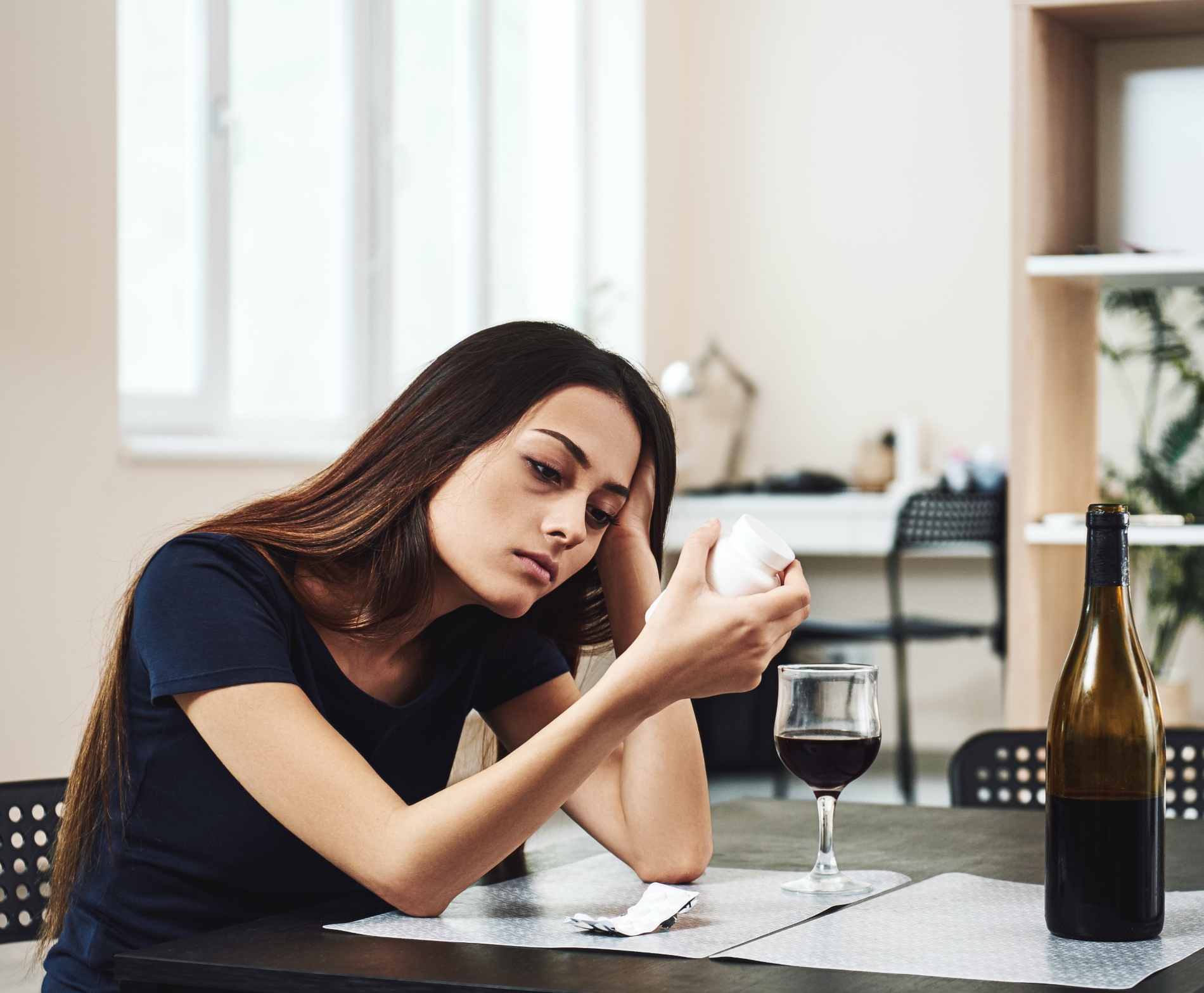What Is Self-Medicating?
To self-medicate is to take on medical and mental health care yourself, rather than by taking expert advice. It is an attempt to deal with physical or emotional pain with the help of drugs, alcohol, and/or other substances, or engage in a behavior/action that is harmful and without the guidance of a doctor or mental health professional in their respective scope of practice.
There are risks in taking your medical and mental health care into your own hands. You could be operating under an incorrect self-diagnosis, severe adverse reactions, drug interactions, incorrect administration, incorrect dosage, incorrect therapy, you could be masking a severe disease, risk of dependence and abuse, and/or doing damage to your body such as your heart and other internal organs.
Signs You May Be Self-Medicating
You may be self-medicating if when you are feeling uncomfortable emotions such as anxiety, stress, irritability, discontent, or depression, you turn to drugs or alcohol and/or self-harm to relieve yourself of the emotion. You may even avoid social events, family, friends, or other activities. Neglecting your physical care such as personal hygiene and nutritional needs. An onset of sudden anger or mood swings can occur. You may also engage in secrecy of your behavior or how you spend your time and start experiencing difficulties at work and/or school.
Causes Of Self-Medicating
Suppressing a mental health issue can drive an individual to self-medicate. Individuals suffering from intense emotions, distorted thoughts, or physical pain may be attempting to suppress depression, bipolar disorder, schizophrenia, trauma and/or abuse or other mental health disorders. What they have in common is that they cause stressful experiences and memories and set off an internal desire to protect oneself, as a defense mechanism, and the desire sets in to seek out relief, often and instantly.
Prevalence and Statistics
In a survey conducted by Niznik Behavioral Health, 77.7% of individuals experiencing health issues admitted to self-medicating. 27.4% were due to physical health issues, 26.5% were due to mental health issues, and 23.7% were co-occurring physical and mental health issues. Substance abuse is one of the most common forms of self-medicating.

Self-injury or self-harm used impulsively and not intended to be lethal is another common method of self-medicating. Most common methods are skin cutting, head banging or hitting or skin burning. Research shows that 4% of U.S. adults, and 15% of teens engage in this form of self-medicating.
Engaging in eating disorder behavior can be another form of self-medicating. This can include restricting food, purging food, and/or binging food as a means of punishing self.
Treatment
If you or a loved one is showing signs or symptoms of self-medicating behavior with or without the presence of utilizing illicit substance abuse, there are various treatment options available.
Treatment settings include:
- Inpatient Hospitalization – this is the highest level of containment. Inpatient hospitalization may be done at a voluntary or involuntary basis and is for individuals who are in imminent danger to themselves or others, presenting a significant risk. The focus of treatment at this level is short-term stabilization and safety.
- Residential (RTC) – This program provides 24/7 monitoring in which the individual lives on site. This level of care is for individuals who are significantly impacted by their symptoms and display adaptive living skill deficits preventing them from accessing treatment from their home.
- Partial Hospitalization Program (PHP) or “Day Treatment” – This program provides care five days a week for six to eight hours per day. This level includes group and individual sessions with psychiatric care. Participation in the program does not include housing though some facilities may provide supportive housing with an out-of-pocket cost if needed.
- Intensive Outpatient Program (IOP) – IOP can be provided at three or five days a week for at least three hours a day. The program will focus on group sessions for the individual to gain skills to manage their symptoms. This level of care may include individual therapy and psychiatry for medication management.
- Outpatient (OP) – At this level, individuals are engaging in psychiatry and therapy and few times per month or once a week depending on their presentation and symptoms.
Encourage your loved one to speak to professionals to gain a higher understanding and education on the levels of care and what appropriate facilitates would meet their personal needs, symptoms and/or diagnosis.
Modalities of treatment can include:
- Psychotherapy – Cognitive behavior therapy (CBT), Dialectical behavior therapy (DBT)
- Eating Disorder Treatment
- Psychotropic medications
- Lifestyle changes
- Self-management strategies and education
Get Mental Health Treatment Without Self-Medicating In Orange County
At First Light Recovery we offer Residential Treatment (RTC) and provide CBT and DBT skill streaming to address self-medicating maladaptive coping. Contact us in San Juan Capistrano today.




